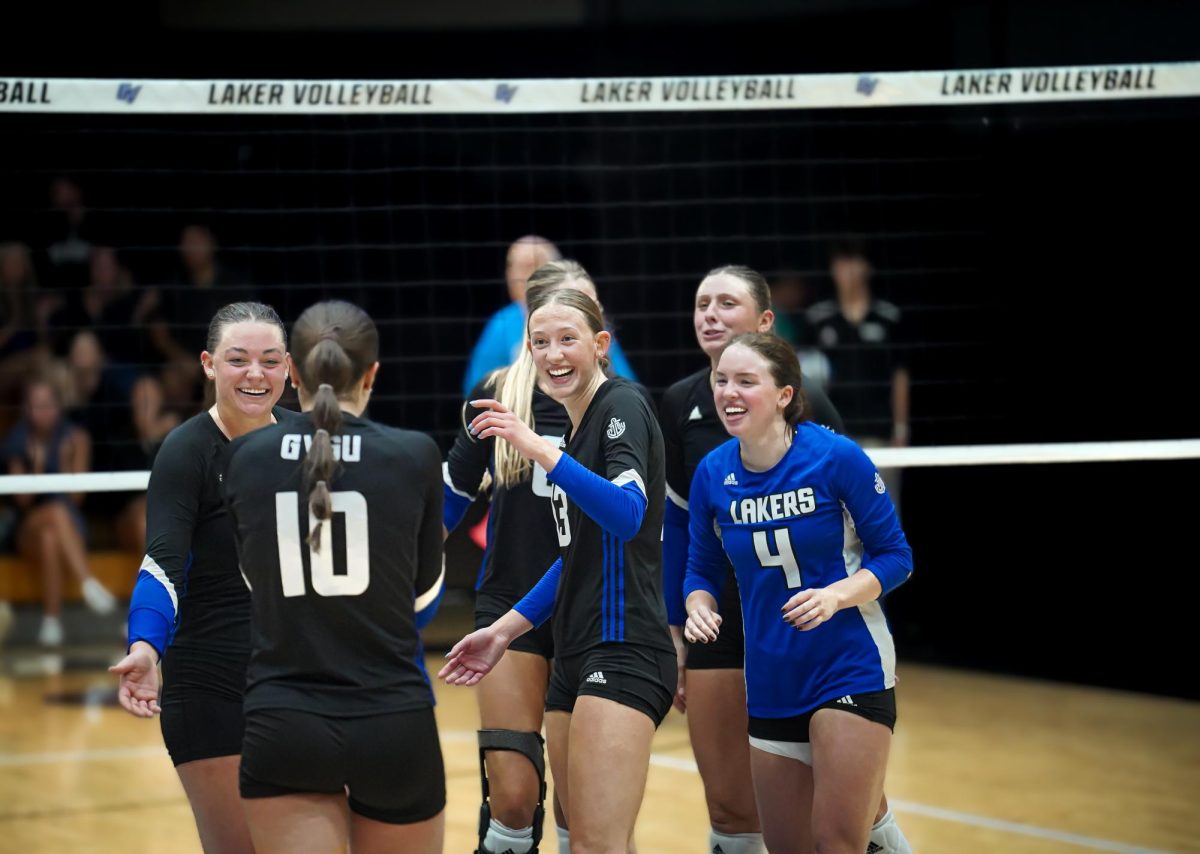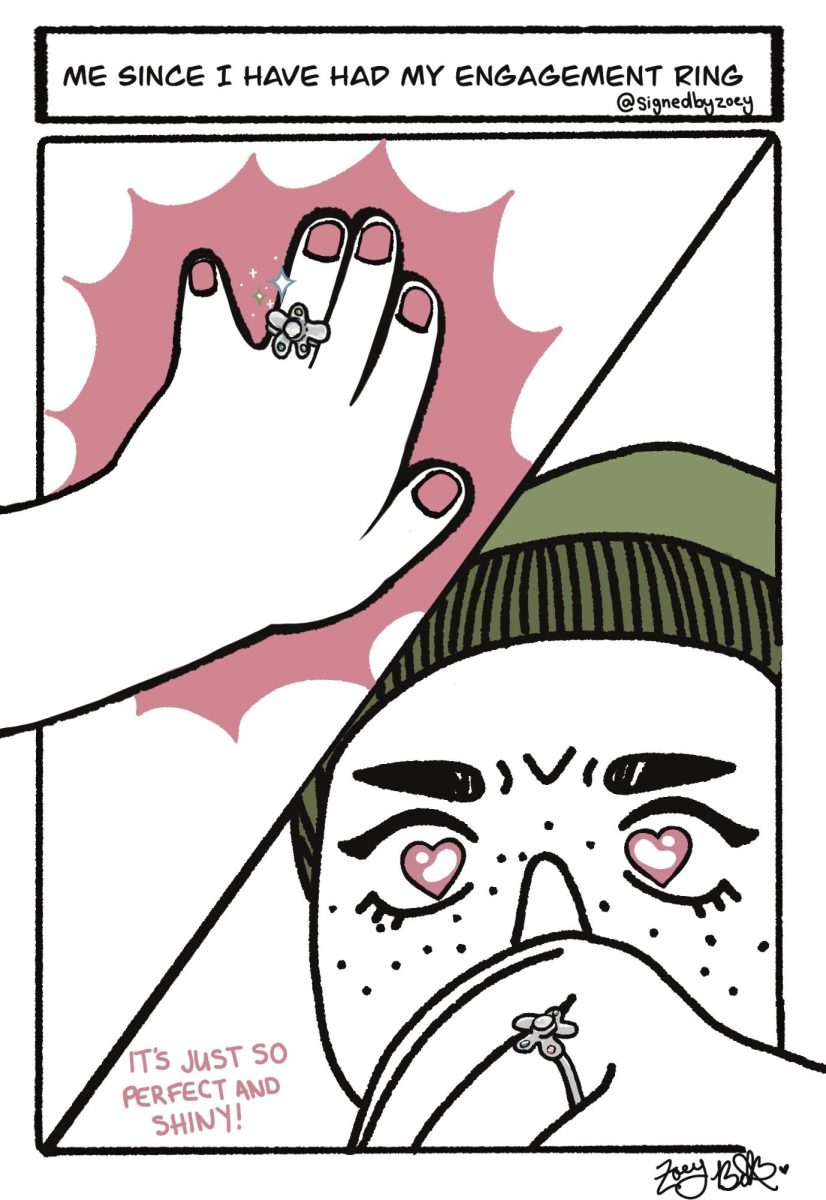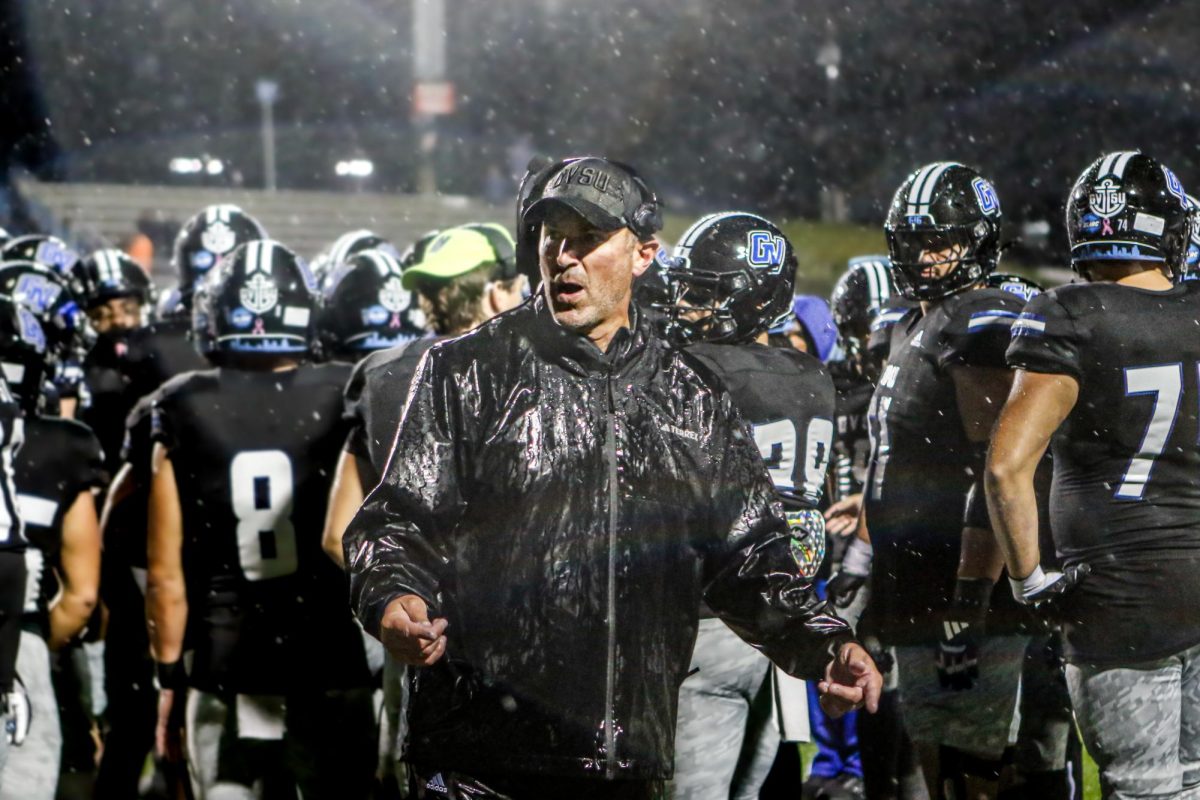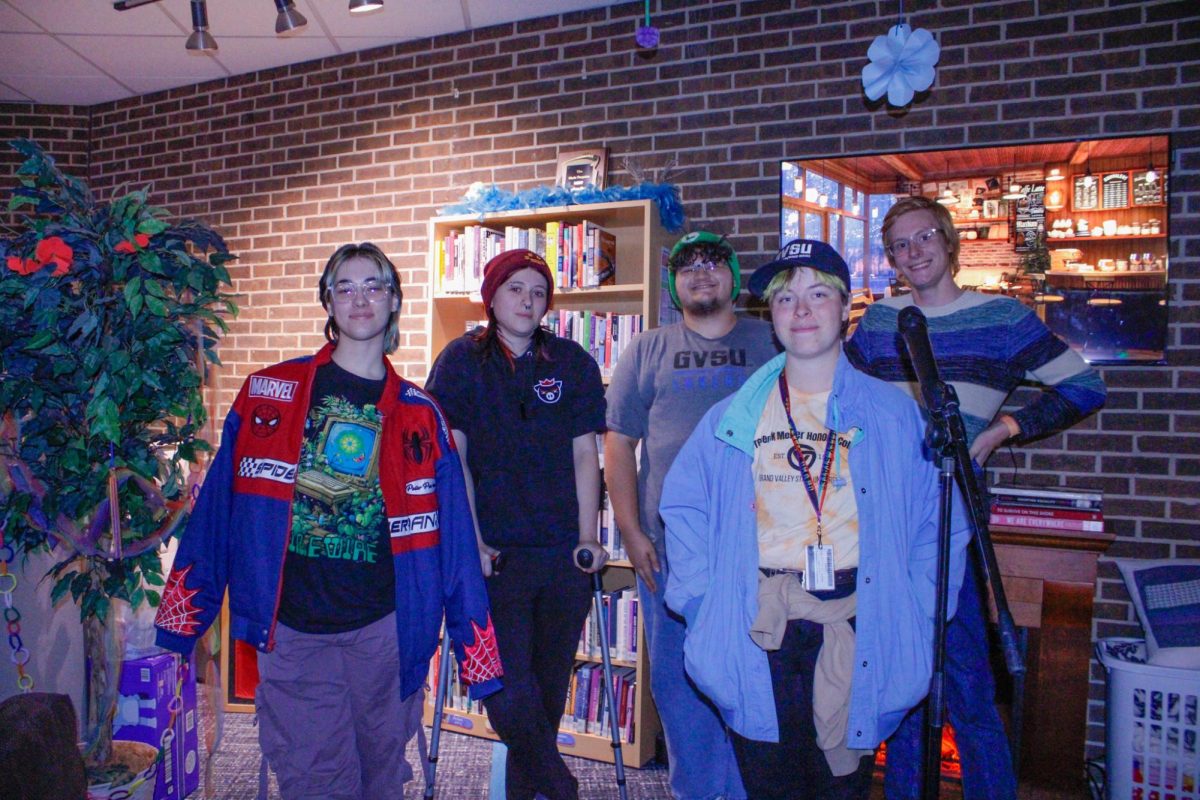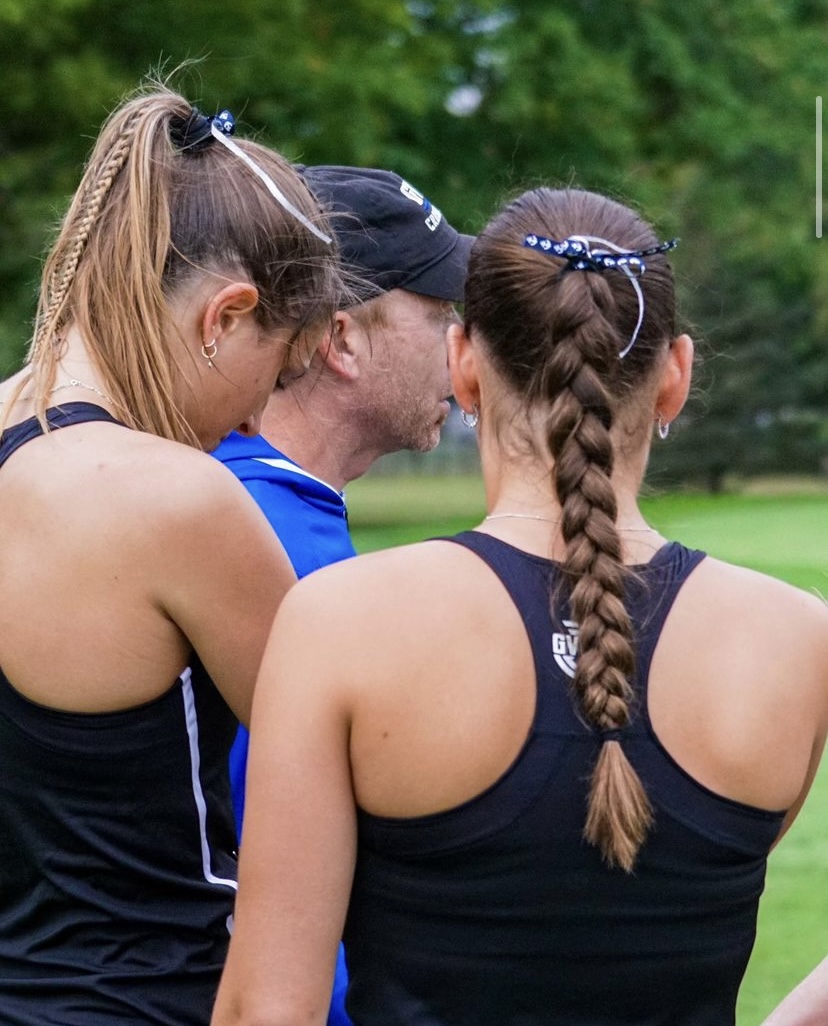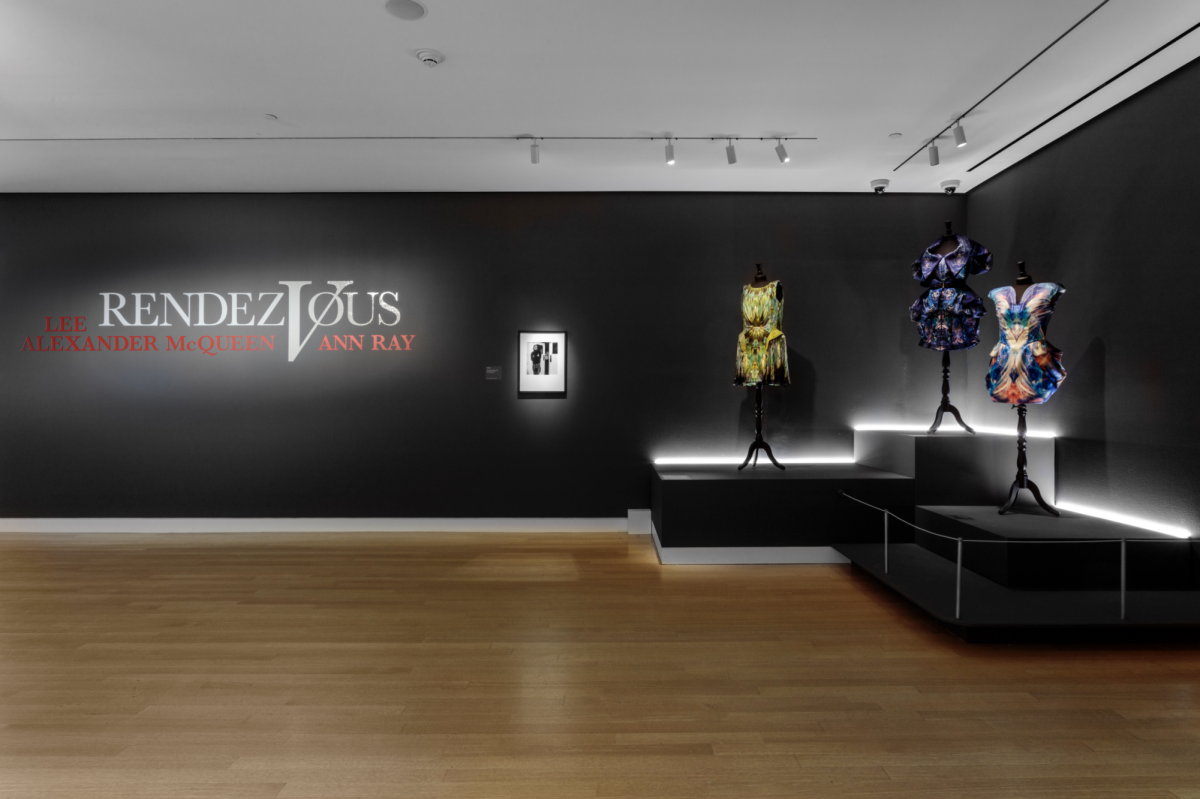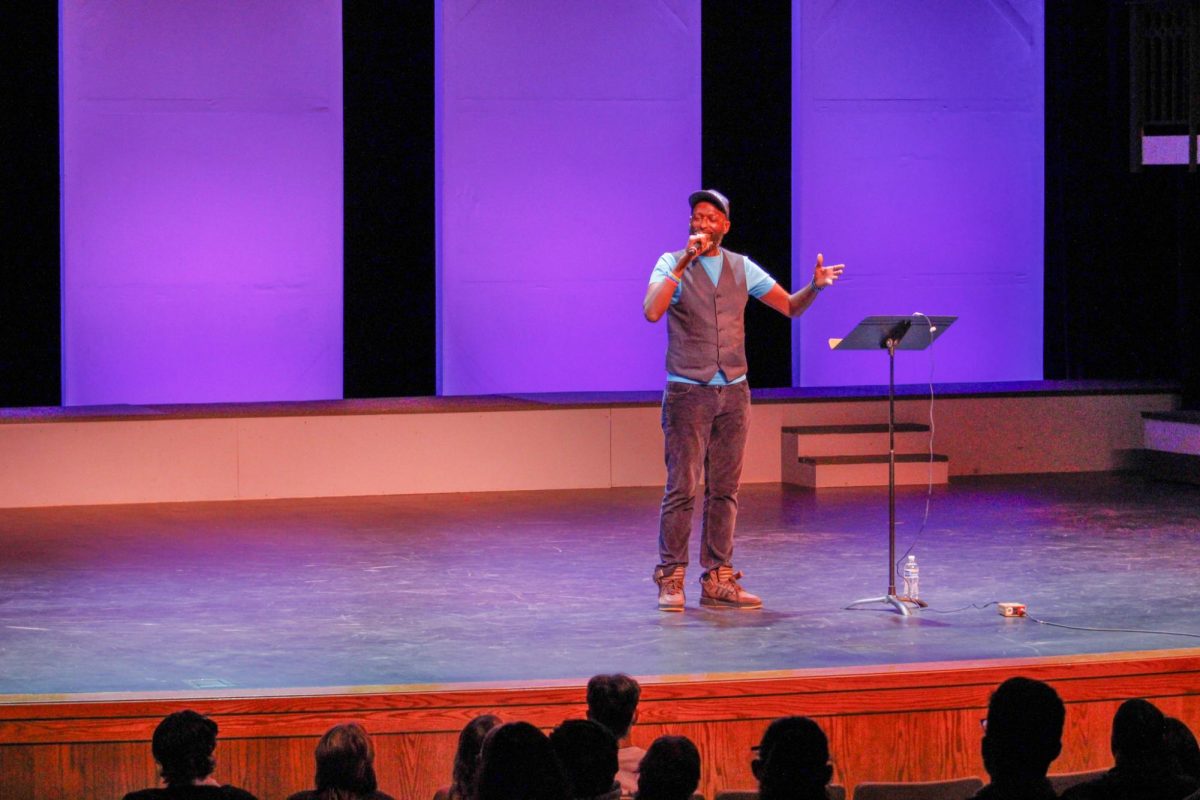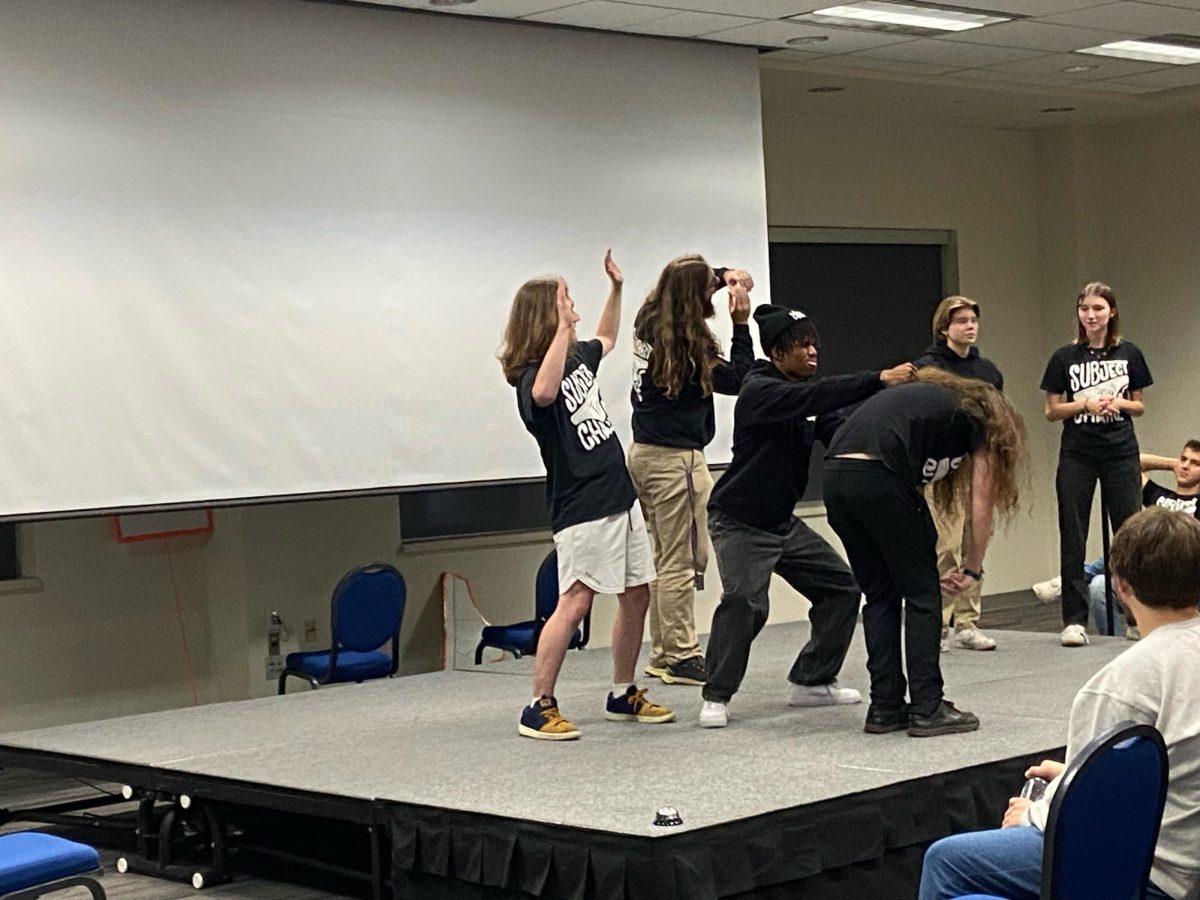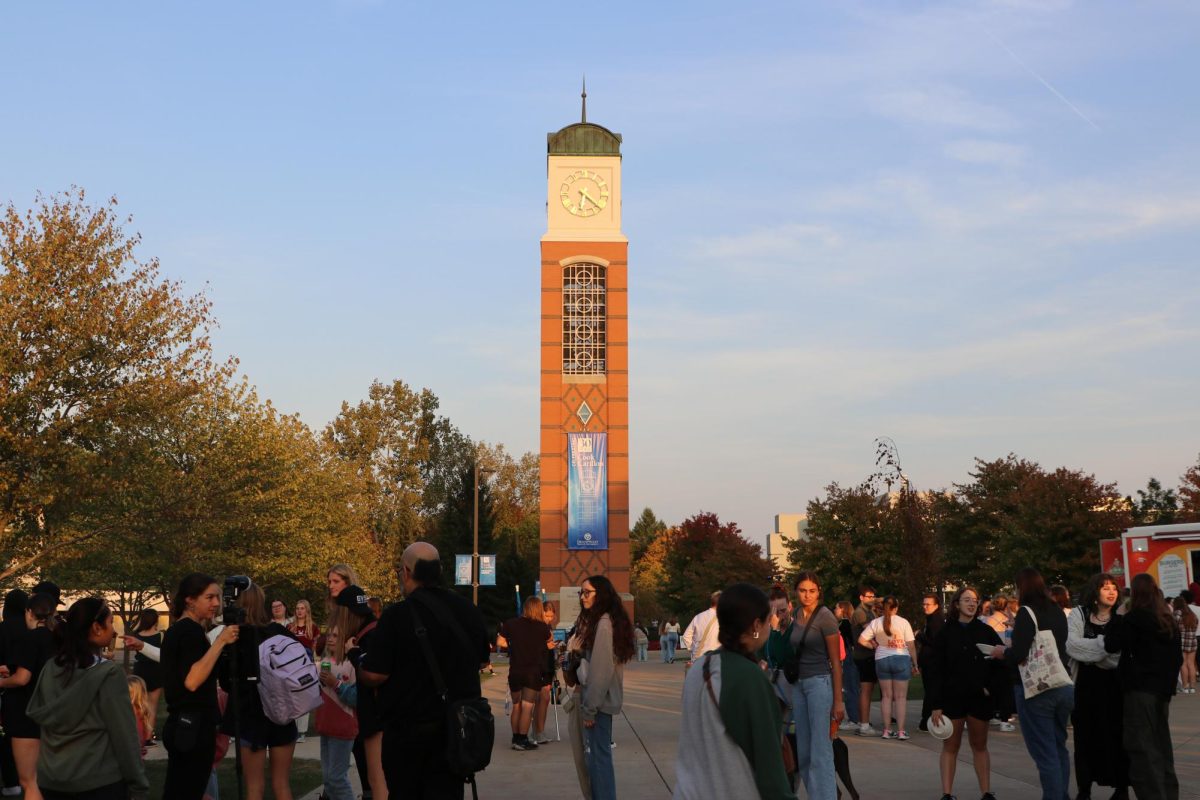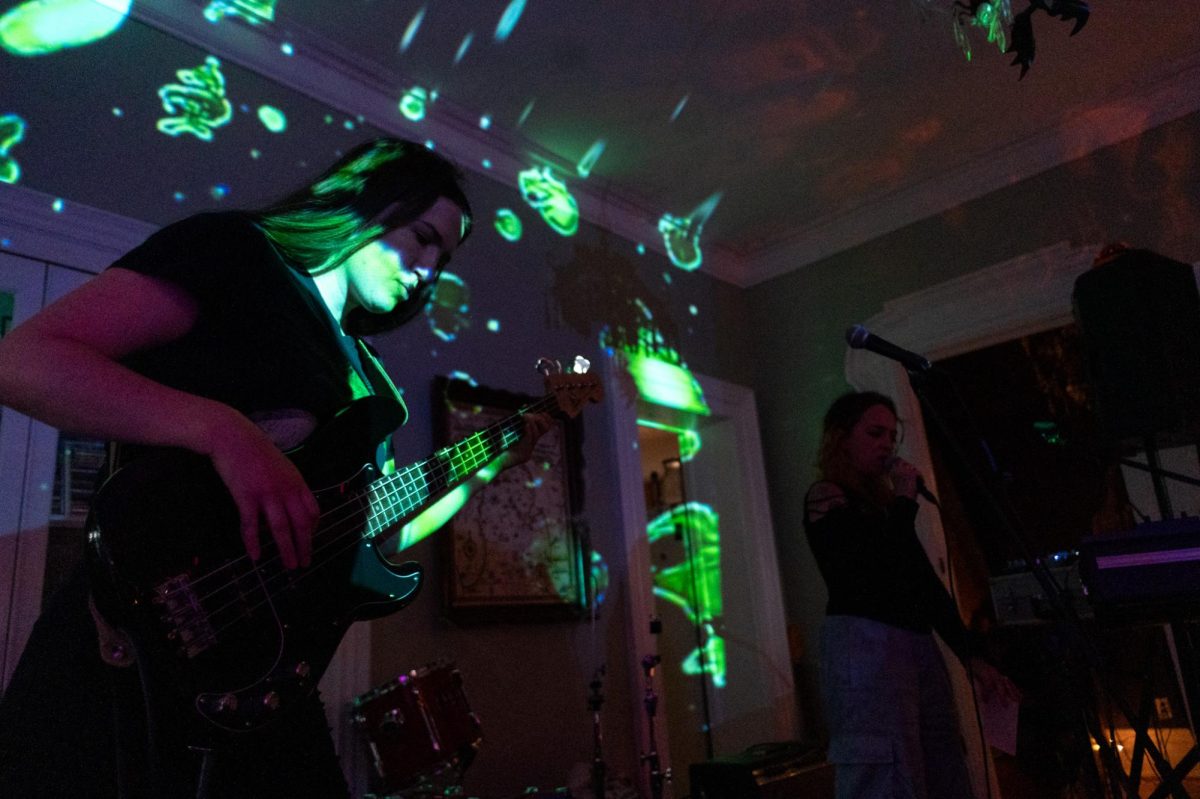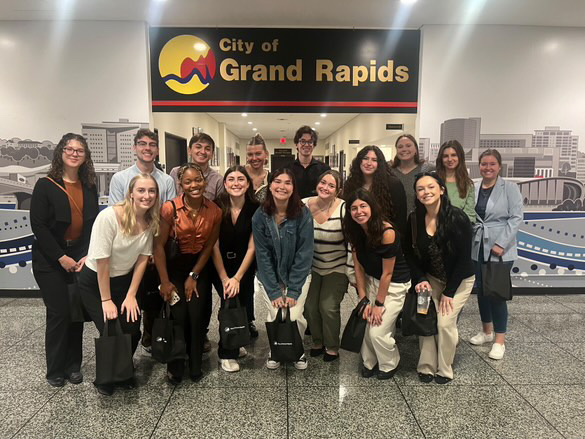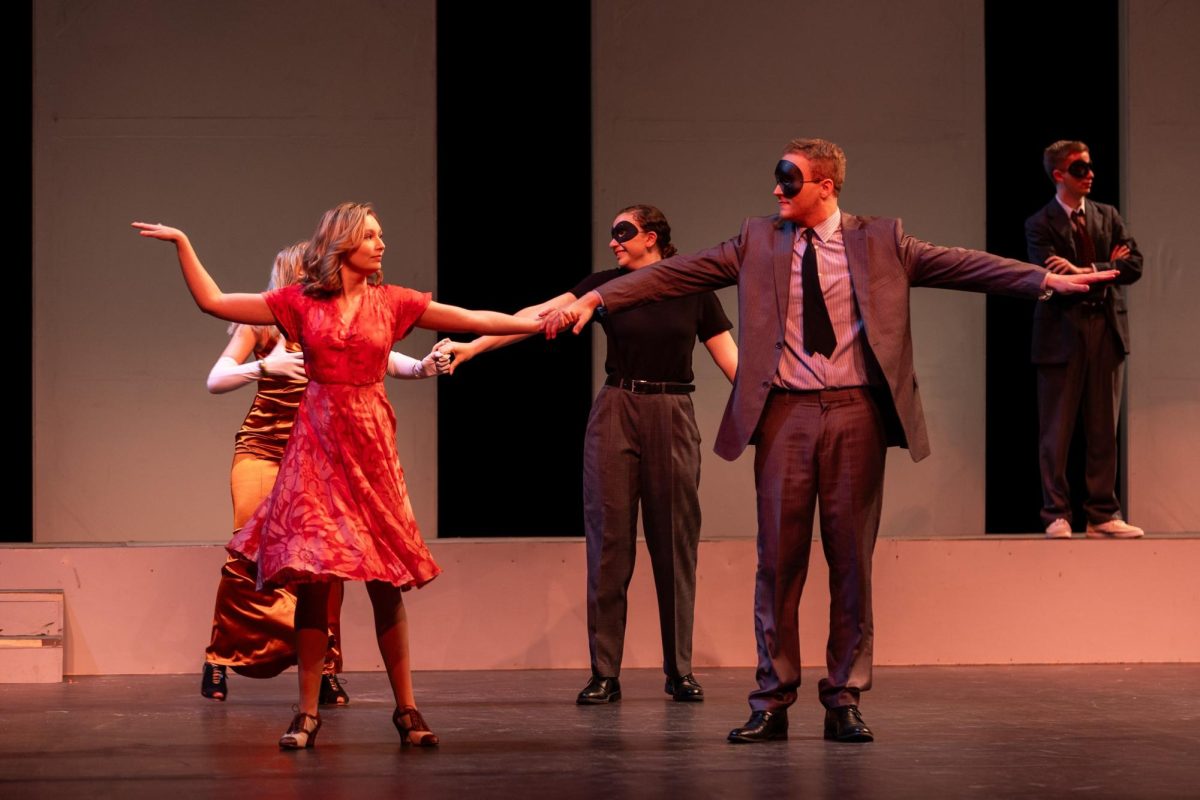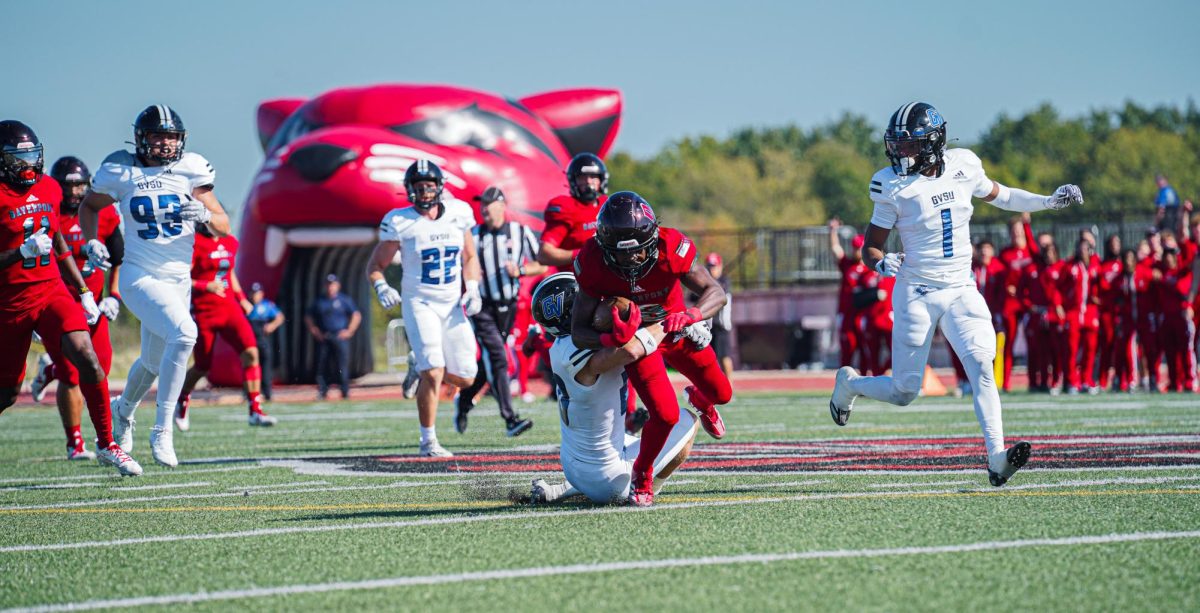Freedom Formal raises $1,200 for Muskegon shelter
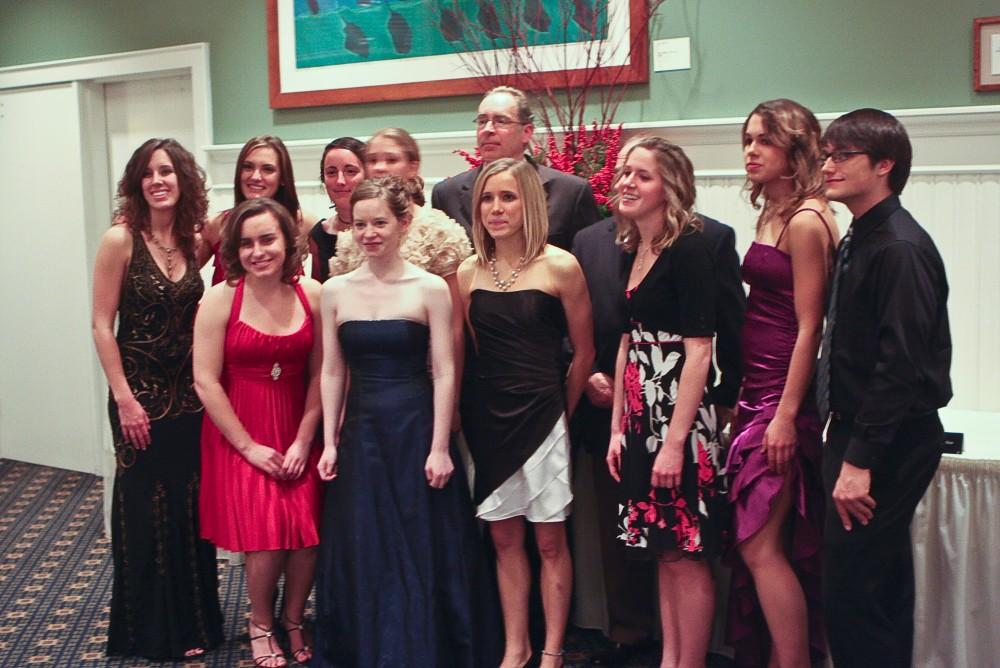
The Honors Class, who orchestrated the Freedom Formal
Dec 6, 2010
Tea lights twinkled and candelabras lit the dim ballroom of the Alumni House Saturday night as students gathered not just for a night of dancing reminiscent of the high school winter ball, but also for a night dedicated to victims of human trafficking.
The Saturday night Freedom Formal, a dance and trafficking advocacy event, raised more than $1,200 for the Hope Project, a nonprofit organization based in Muskegon to combat human trafficking in West Michigan.
Guests to the Alumni House participated in a silent auction throughout the evening, donating money for such prizes as a meal at the Amway Hotel Restaurant, rooms at the JW Marriot and the Courtyard and tickets to the Grand Rapids Civic Theatre and the Grand Rapids Griffins.
“An event like this brings people together for a common cause, and that is the only way we will be able to make a change,” said Freedom Formal coordinator Amanda Clark.
Clark said she feels a special connection to human trafficking as a social justice issue because she witnessed it firsthand on a trip to Ghana through the honors college in the summer of 2009.
Last winter, she worked as an intern with Grand Rapids-based Women at Risk International, an organization that creates safe places for women and children rescued from various forms of abuse including sex trafficking.
“Human trafficking pulls on my heartstrings,” Clark said. “I feel like it’s one of those issues that I have to stand up for because who else is going to? Injustice is injustice, whether it be in the form of sexual trafficking or other things, be it racism, sexism, anything.”
Amanda Chapman, a representative from the Hope Project, spoke at the formal about trafficking in Michigan. She said the U.S. has six shelters to house child victims of sex trafficking. Due to the shortage of rehabilitation facilities, many trafficked children end up in juvenile detention facilities for prostitution charges.
“If you are 12 years old, you can’t consent to selling your body,” Chapman said. “So it doesn’t make sense that they would end up in a detention facility.”
The money raised at the event will help fund the Hope Project’s shelter for trafficked children. The shelter provides physical and psychological care for the children who often have post-traumatic stress disorder and self-mutilating tendencies. The project trains foster families to look out for these children with special needs.
Miss Michigan Katie LaRoche, who campaigns against human trafficking, addressed the audience about how she became involved in the movement. Before her pageant days, LaRoche donned a backpack and hiking boots and studied abroad in Africa, where she toured the overcrowded slums.
“It was something I had never seen in my life and had never expected to see in my life,” she said. “I felt hopeless, but I simultaneously felt courage.”
When she received an invitation to participate in a pageant, she accepted to promote her social justice platform.
LaRoche soon discovered trafficking does not just happen overseas, it also occurs here in the U.S. She said she felt motivated to do something to help.
She worked as a legislative aid in the House of Representatives and used her influence in the government to learn about and work on some of the trafficking bills in Congress.
One bill would provide a definition for human trafficking, and a second bill would allow the victims compensation.
“We hope to have a solid policy package in place by spring,” LaRoche said.
When LaRoche first entered the pageant circuit, she said she felt out of place. But she was determined to advocate for social justice.
“What matters is that you have been given an immense amount of tools to work with,” she said. “Should you choose to use your toolbox, you will be a much better person.”



